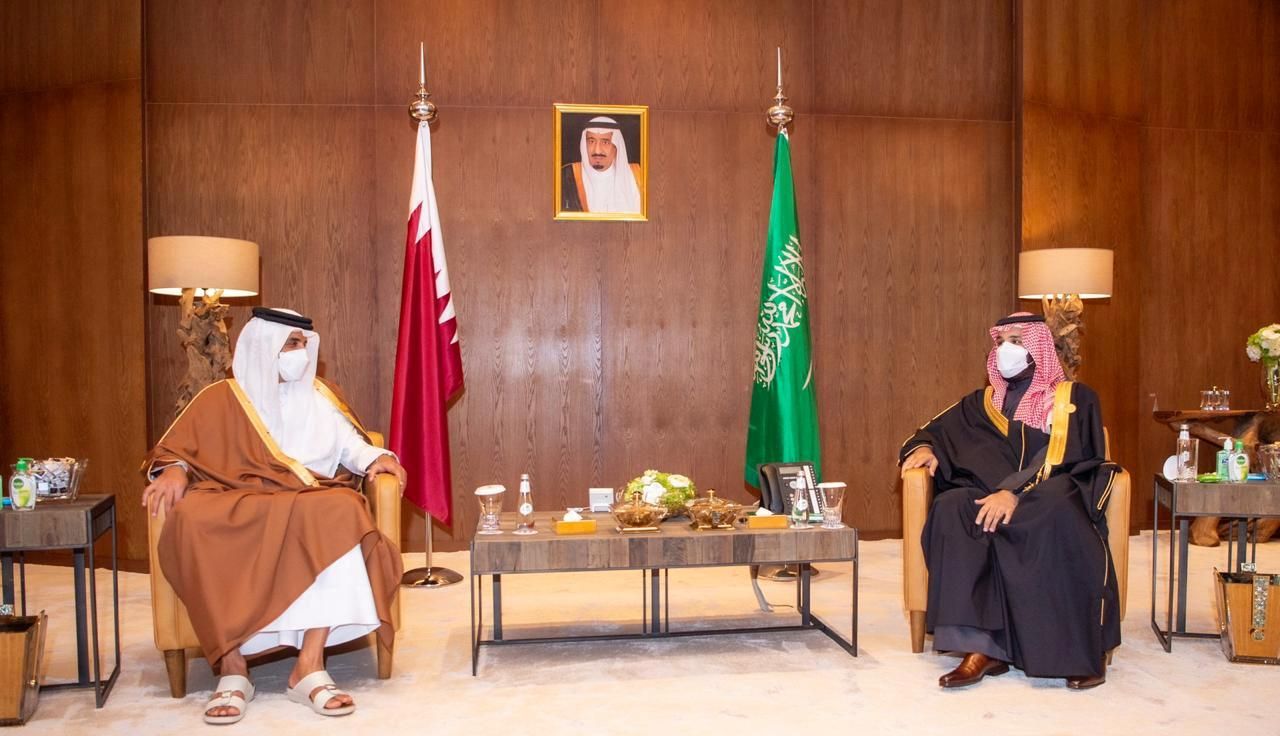January 05, 2021
Qatar blockade lifted: A bitter dispute between Gulf rivals Saudi Arabia and Qatar has begun to ease after Qatar's Emir Sheikh Tamim bin Hamad al-Thani flew to Saudi Arabia for the Gulf Cooperation Council summit and was warmly embraced by Saudi Crown Prince Mohammed bin Salman, known as MBS. The immediate cause of the détente was Riyadh's decision to lift a years-long land and air blockade that significantly disrupted Qatar's economic activity and led to a bitter standoff in the Gulf. (The Saudis, along with Egypt, Bahrain, and the UAE launched a joint blockade against Qatar in 2017, citing its support for the Muslim Brotherhood, and regional foes Iran and Turkey.) It's unclear what concessions Qatar made in exchange for beginning the normalization process, though President Trump's son-in-law Jared Kushner, a close friend of MBS, has been lobbying for the move for some time. Qatar has long denied claims that it supports Islamic extremist groups and rebuffed demands like terminating Turkey's military presence within its borders. As for the timing for the rapprochement, it could reflect a feeling that increased GCC cooperation is needed as the incoming Biden administration in the US is expected to promptly re-engage in talks with Iran.
Where is Jack Ma? After two months where he seemed to have disappeared altogether, Chinese billionaire and Alibaba co-founder Jack Ma is now "laying low," according to media reports, after a fallout with the Chinese government. Ma has not been seen in public nor heard of since late October, when he openly criticized China's banks and financial regulators. Just days later, Beijing blocked Ma from listing his fintech company Ant on the Hong Kong and Shanghai stock exchanges, in a deal that would have made Ant the world's largest initial public offering. When Ma tried to save the IPO by offering the government a stake in Ant, Beijing doubled down by opening an antitrust probe into Alibaba, the world's top e-commerce firm. Indeed, Ma's fall from grace has sent a strong message to other Chinese tycoons: don't question the regime's wisdom — or else. It also plays into wider public resentment about rising income inequality in China, which the ruling Communist Party is very worried about. Either way, we're watching to see if Ma will find a way to make amends with the government, or whether his low profile is a preamble for Beijing to take over Ant and other parts of the Alibaba empire.
Incompetence and horror in Egypt: Over the past several days, shocking video footage has made the rounds online of an oxygen leak that suddenly killed every patient in the intensive care unit of an Egyptian hospital. Egypt's government first denied the story, accused the Muslim Brotherhood of making it up, and pressured hospital employees to keep quiet. Public outrage is growing, however, and Egypt's health minister has now admitted that hospitals face oxygen shortages as a new wave of COVID takes hold across the country. This combination of horrific event, personal tragedy, state incompetence, and public fury recalls the massive warehouse explosion in Beirut that killed more than 200 people, left 300,000 homeless, and destabilized Lebanon's government in August 2020. Egypt is far more politically stable than Lebanon, but we can expect more of these kinds of stories from other cash-strapped, poorly governed countries in 2021, particularly because they will be the last to receive the vaccinations that allow human, economic, and political recovery to begin.More For You
- YouTube
Putin can't stop won't stop. #PUPPETREGIME
Most Popular
We’re moving toward a world where roads don’t just move traffic — they enable services and transactions. Mastercard is working with Volvo and the North Carolina Turnpike Authority on a pilot that explores in-vehicle toll payments without transponders, signaling how V2X connectivity can make infrastructure a platform for data and payments. This future of connected transportation aims to make travel safer, smoother and smarter. Read the full article here.
Bad Bunny during the Super Bowl LX halftime show press conference at Moscone Center.
Kirby Lee-Imagn Images
100 million: The number of people expected to watch the Super Bowl halftime performance with Bad Bunny, the Puerto Rican superstar and newly minted Album of the Year winner at the Grammys.
Alysa Liu of Team USA during Women Single Skating Short Program team event at the Winter Olympic Games in Milano Cortina, Italy, on February 6, 2026.
Raniero Corbelletti/AFLO
Brazilian skiers, American ICE agents, Israeli bobsledders – this is just a smattering of the fascinating characters that will be present at this year’s Winter Olympics. Yet the focus will be a different country, one that isn’t formally competing: Russia.
© 2025 GZERO Media. All Rights Reserved | A Eurasia Group media company.
